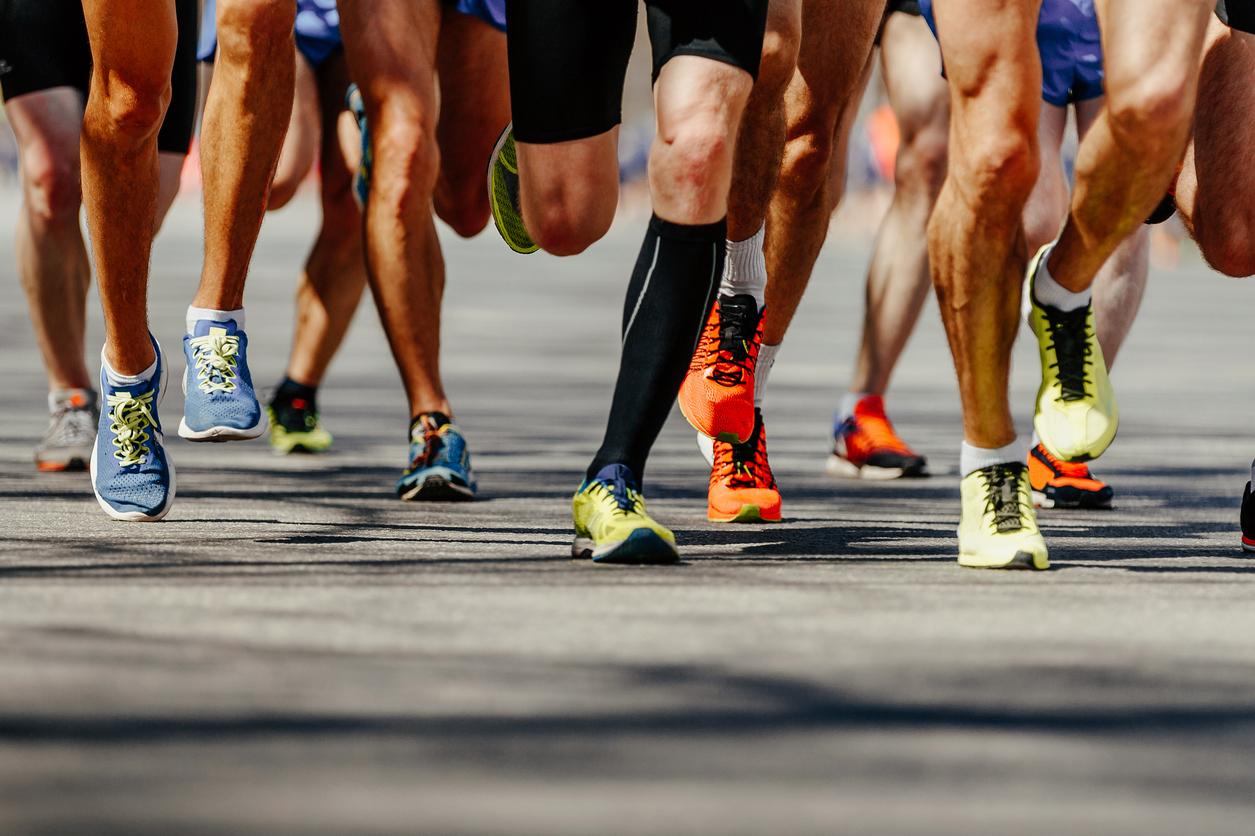No, it’s never too late to start exercising! Starting an endurance activity after the age of 40 would even considerably reduce the risk of having a stroke twenty years later. Not to mention the benefits on the silhouette! So why not try running, like 12 million French people?
To start: we start walking
This allows the body to get used to moving, to not find itself out of breath on the first attempt and, above all, not to be disgusted to the point of not wanting to start again.
Start with 1 or 2 weekly sessions of 15 to 30 minutes of walking. First normally, for 5 to 10 minutes, to warm up. Then we accelerate the pace, little by little and up to the maximum possible for 10 to 20 minutes. To optimize your first invigorating outings, take the opportunity to practice adopting the right posture and the right reflexes, keys to avoiding injury when you can run.
After 3 to 5 outings of brisk walking with (or without) small accelerations while running, it is time to move on to sessions alternating walking and running. Once you have unlocked the joints (rotations of the head, pelvis, shoulders, elbows and wrists, knees and ankles), always start by warming up with a 10-minute walk, gradually increasing the pace. .
Then run for 1 to 3 minutes while jogging, then resume walking for 7 to 9 minutes to recover, but keeping a steady pace. Repeat this cycle 2 or 3 times, so that your session lasts 30 to 40 minutes (warm-up included).
3 good reasons to take up running… even after 40
- Running is good for your health. Running regularly is a good way to protect your cardiovascular health and your heart: according to several recent surveys, running would also be beneficial for the bones (it would reduce the risk of osteoporosis at menopause, for example) and for the brain (and in particular to prevent Parkinson’s disease). Better: running would even help to quit smoking!
- Running is good for morale. Against depression, mood disorders or anxiety, running is an effective therapy. It’s chemical: during exercise, cortisol (the stress hormone) decreases while serotonin and endorphins (the substances of well-being) increase. Emotions are regulated, tensions are evacuated and you feel better… in your sneakers.
- Running helps not to gain weight. In addition to a balanced diet (of course), running is a good sport to refine everywhere, and especially the lower body. Thus, 1 hour of running burns around 600 Kcal, which is the equivalent of a good starter-main course-dessert meal.
Running: how to stay motivated?
- We plan our sessions: try to plan 2 weekly sessions spaced at least two days apart. One during the week, the day when you are the least tired, one at the weekend thinking about stalling muscle strengthening (for example, 30 minutes one evening or 2 times 15 minutes two mornings). If this is not possible, schedule one session per week, but do not derogate from it!
- We listen to music : it’s an opportunity to create playlists of your favorite tunes, to listen to podcasts or radio shows that you haven’t been able to listen to live.
- We set ourselves the objective of participating in a race: there are some of all distances (from 5 km) and all styles (colourful, disguised, united, in relay…). Once registered, we have a goal that encourages us not to give up training. And progress!
Source : My running lesson – Charlotte Reynaud-Prior and Gilles Rocca (ed. Eyrolles)
Read also :
- Running when you have diabetes
- Migraine: running, better than medication?
- How long should you run each week to lose weight?























